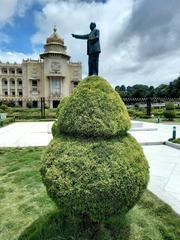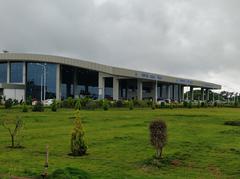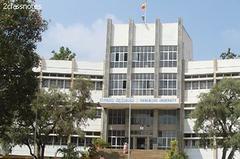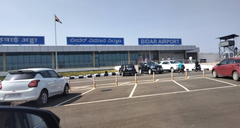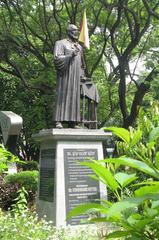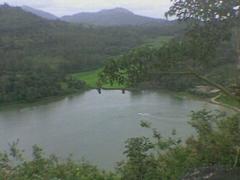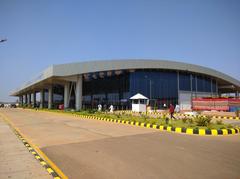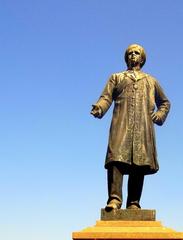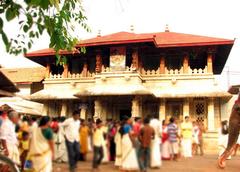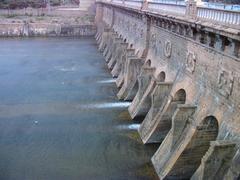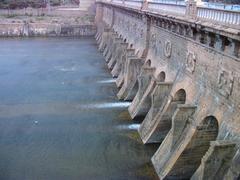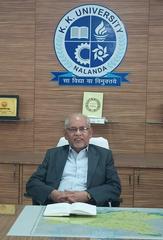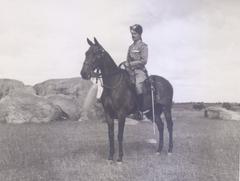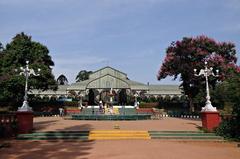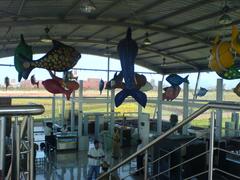World War I Sapper Memorial Karnataka: Visiting Hours, Tickets, and Comprehensive Guide
Date: 14/06/2025
Introduction
The World War I Sapper Memorial in Bengaluru, Karnataka, stands as a poignant tribute to the valor and sacrifice of the 1st Madras Pioneers (Madras Sappers), a distinguished regiment of the British Indian Army. Their engineering expertise and courage during World War I (1914–1918) played a crucial role across various global battlefronts. This memorial preserves the memory of officers and soldiers who laid down their lives, offering a space for reflection amid Bengaluru’s vibrant urban landscape.
Located within the National Military Memorial Park and also at Brigade Road Junction, the memorial is not only a site of remembrance but also a cultural landmark that connects visitors to India’s military history. This guide provides detailed information on the memorial’s history, architectural features, visiting hours, accessibility, and travel tips to enhance your visit.
For additional context and updates, refer to resources like the Indian Army and The Hindu.
Historical Overview
Origins of the 1st Madras Pioneers
The 1st Madras Pioneers trace their lineage to the mid-18th century, originating as engineering and infantry units within the British East India Company. Comprising several regiments, including the 61st, 64th, and 81st Pioneers, the Madras Sappers undertook both combat roles and vital military engineering tasks—building roads, bridges, and fortifications essential for troop movements (The Hindu).
Contributions During World War I
Deployed to the Western Front, Mesopotamia, East Africa, and Gallipoli, the Madras Sappers constructed trenches, laid barbed wire, built roads and railways, and supported infantry assaults. Their technical proficiency proved indispensable in battle, and the memorial commemorates the 449 officers and soldiers who lost their lives in the conflict.
Disbandment and Enduring Legacy
The regiment was disbanded in 1933 due to economic constraints, but their legacy endures through the memorial, which stands as a testament to their contributions to both Indian military engineering and the British war effort (The Hindu).
Memorial Design and Symbolism
Architectural Features
- Design: The memorial’s structure blends colonial and Indian influences, constructed from Mysore granite. It is a four-sided stone monolith, symbolizing the multiple theaters of war where the regiment served.
- Inscriptions: Each side bears inscriptions listing regiments and numbers of fallen soldiers, along with the Madras Pioneers insignia.
- Location: The Brigade Road memorial sits within a tranquil triangular park, while the National Military Memorial Park features a tall obelisk encircled by engraved plaques.
Symbolic Elements
- Chhatri Motif: The integration of an Indian chhatri into a European-style cenotaph represents the shared military heritage of colonial India and Britain.
- Plaques and Engravings: Names, regimental insignia, and dedications in multiple languages emphasize inclusivity and honor the diverse backgrounds of the soldiers.
Visiting Hours and Ticket Information
Brigade Road Memorial
- Hours: Daily, 8:00 AM – 6:00 PM
- Entry Fee: None
- Accessibility: Wheelchair accessible, although the commercial area can be crowded
National Military Memorial Park
- Hours: Daily, 10:00 AM – 6:00 PM
- Entry Fee: Free
Tip: Check for updates or special event closures in advance, especially on national holidays.
Location and Directions
- Brigade Road Memorial: Brigade Road Junction, easily accessible by BMTC buses and Bangalore Metro (M.G. Road Station)
- National Military Memorial Park: T. Chowdaiah Road, opposite Indira Gandhi Musical Fountain Park, Vasanth Nagar, Bengaluru
Public Transport: Cubbon Park Metro Station is about 1 km from the NMM Park. Ample BMTC buses serve both areas.
Parking: Limited near Brigade Road; recommended to use public transport.
Facilities and Accessibility
- Restrooms: Available near main entrances at NMM Park
- Wheelchair Access: Ramps and paved paths at both sites
- Shaded Seating: Benches and shaded areas throughout park
- Security: CCTV and personnel onsite
- Food: No food stalls inside parks; restaurants nearby
Visitor Experience and Etiquette
- Dress Code: Modest, respectful attire
- Photography: Allowed, but avoid flash and drones
- Behavior: Maintain silence near the memorials; respect ceremonies and commemorations
Guided and Educational Tours
While there are no regular guided tours, educational groups can request special tours at NMM Park in advance. Informational plaques and interpretive panels provide rich historical context.
Events and Ceremonies
- Commemorative Events: Republic Day, Independence Day, and Kargil Vijay Diwas feature special ceremonies and military band performances.
- Annual Remembrance: Wreath-laying ceremonies and regimental gatherings are held regularly, open to the public (The Hindu: Sappers’ Day).
Nearby Attractions
- Indira Gandhi Musical Fountain Park: Evening musical fountain shows
- Vidhana Soudha: Karnataka’s State Legislature, 1 km away
- Bangalore Palace: Royal residence, 2 km away
- Cubbon Park: Lush green urban park, perfect for a stroll
Travel Tips
- Arrive Early: Enjoy tranquil mornings and avoid crowds
- Weather: Best from October to February; carry rain gear in monsoon
- Essentials: Bring water, hats, and sunscreen
- Combine Visits: Explore nearby sites for a richer experience
Frequently Asked Questions (FAQs)
Q: What are the visiting hours?
A: Brigade Road Memorial: 8:00 AM – 6:00 PM; NMM Park: 10:00 AM – 6:00 PM daily.
Q: Is there an entry fee?
A: No, both sites are free for visitors.
Q: Are guided tours available?
A: Not regularly, but educational tours can be requested in advance at NMM Park.
Q: Is the memorial wheelchair accessible?
A: Yes, both locations offer accessible paths and ramps.
Q: Can I take photographs?
A: Yes, photography is permitted, but avoid disruptive flash and drone usage.
Q: What is the best time to visit?
A: Early morning or late evening; October–February for pleasant weather.
Conclusion
The World War I Sapper Memorial is a profound symbol of India’s military heritage and a testament to the courage and technical prowess of the Madras Sappers. Its architectural elegance, inclusive commemorative practices, and integration with Bengaluru’s cultural landscape make it a must-visit for history enthusiasts and casual visitors alike. Take time to explore the memorial, reflect on the legacy of India’s soldiers, and participate in ceremonies if possible.
For more information, updates, and visitor support, consult the Indian Army official website, Karnataka Tourism, and the Commonwealth War Graves Commission. For curated city guides and heritage event updates, download the Audiala app.
Reliable Sources and Official Links
- The Hindu – World War I Sapper Memorial at Brigade Road, Bangalore
- Karnataka Tourism
- Indian Army History
- Explore Bees – National Military Memorial Park
- British Library: India and the First World War
- Commonwealth War Graves Commission – Indian Army Memorial Bangalore

